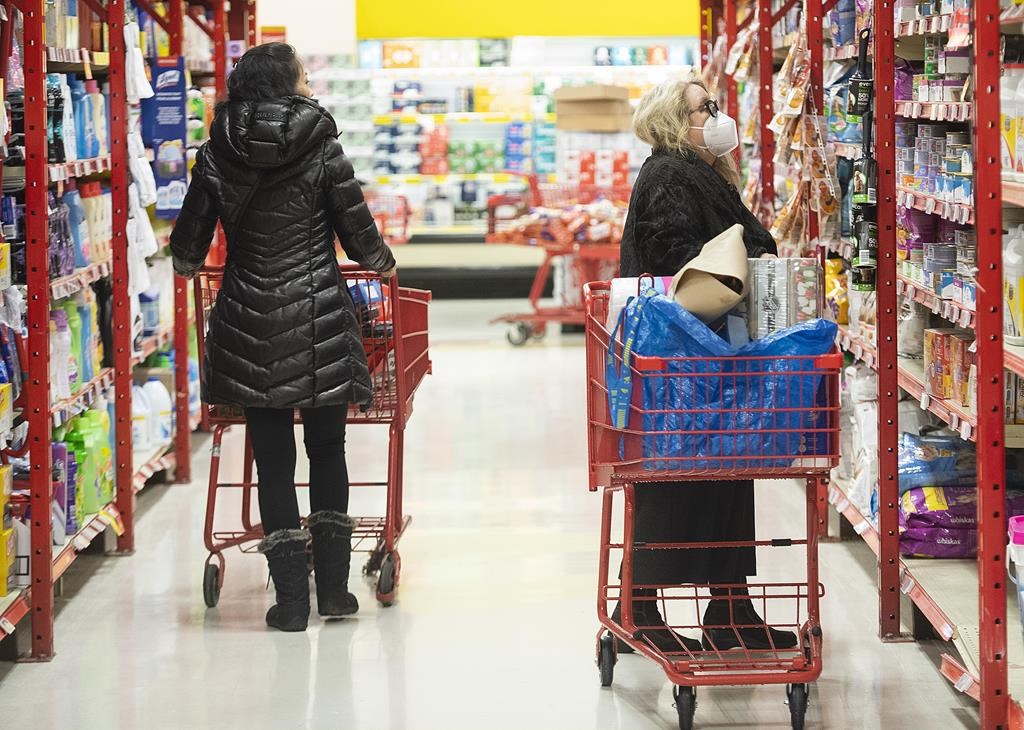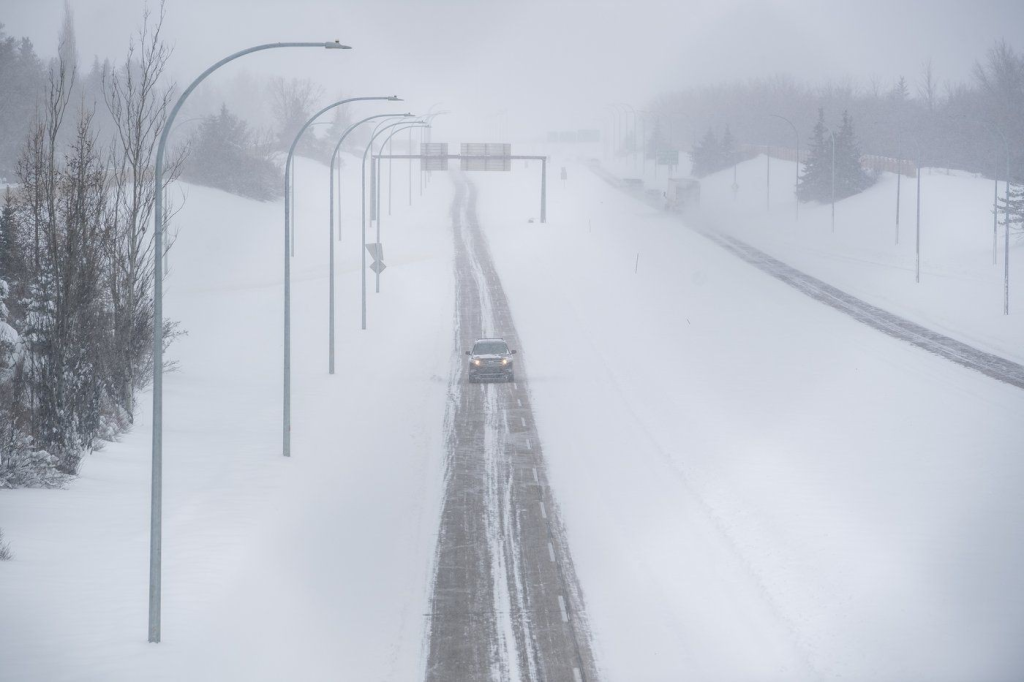Canada’s grocery industry sees record-high profits

Posted December 12, 2023 9:24 am.
As many Canadians struggle to put food on the table and some consider scaling back their holiday dinner, a new report finds Canada’s grocery sector is set to rake in a record amount of money this year.
The Centre for Future Work says grocers are expected to make more than $6 billion in 2023 — a new record and an increase of eight per cent from last year. The new data from the institute found food retailers are now earning more than twice as much profit as they did before the COVID-19 pandemic.
Using data from Statistics Canada, the report says the net income margin on food and beverage retailing has consistently exceeded three per cent of total revenues since mid-2021, more than double the average margin between 2015 and 2019.
The organization says the data suggests retailers took advantage of the pandemic and its aftermath to increase their profits.
Grocer on hot seat
On Monday, Eric La Flèche, CEO of Metro Inc. spoke before MPs at a Standing Committee on Agriculture and Agri-Food meeting. He was questioned repeatedly about what his company has done to ease the burden on shoppers.
“We do care, I do care. It’s a reality that affects all Canadians… and we have to care because otherwise we lose customers,” La Flèche said.
“So, we have to come up with programs that resonate, that provide value to our customers and that’s what our merchandise does every week.”
He went on to claim they offer price reductions on a weekly basis, but Aurora-Oak Ridges-Richmond Hill MP Leah Taylor Roy wasn’t buying it.
“We negotiate hard with our customers. We try to mitigate the impact of increases that we suffer. We try to come up with effective programs. We have good loyalty programs. We advertise over 10,000 products a week,” said La Flèche, before Taylor Roy stepped in.
“I know the programs you have … but I’m just trying to understand, are you saying you have had greater price reductions, or you’ve tried to address the huge run-up in food costs that Canadians are facing right now? That you are doing anything differently than you would have had this not occurred — had we not had this huge food inflation?” she asked.
“We are delivering value to customers every day,” La Flèche responded.
He was also asked about his take on the voluntary Grocery Sector Code of Conduct, which is seen as a “substantial measure to bring fairness, transparency and stability to our grocery sector and supply chain,” according to the federal government.
“We don’t think the prices or the cost that we will negotiate with our vendors will change with the code or without the code,” said La Flèche.
Grocery prices set to rise in 2024: expert
In October, federal Industry Minister Francois-Philippe Champagne met with the bosses of the five biggest grocers in the country: Loblaw, Sobeys, Metro, Costco, and Walmart, but a timeline of when grocery prices may go down has not been revealed. Champagne also previously met with food producers and manufacturers, and this week met with provincial and territorial leaders to discuss the next steps to stabilize grocery prices.
Last week, Canada’s 2024 Food Price Report predicted an increase of 2.5 to 4.5 per cent in overall food costs coming in the new year, with prices going up across the board.

Sylvain Charlebois, professor and director of the Agri-Food Analytics Lab at Dalhousie University, says this year, all sections of the grocery sector were impacted by inflation. He expects a “soft landing,” with inflation expected to cool for the new year.
“We’re expecting some price wars. Things are tightening up right now for grocers and suppliers,” Charlebois told CityNews. “The challenge we have had over the last couple of years is that the rate has been much too high for far too long. We wouldn’t be surprised that in 2024, we go back to that proverbial sweet spot.”
Cost-of-living hurting Liberals
Experts say the Liberals will have to find a way to sell Canadians on the economy, again, after inflation and interest rates are tanking the party’s popularity.
The government has been trailing the Conservatives in recent polls as cost-of-living issues dominate federal politics.
David Coletto, the CEO of Abacus Data, says the Conservatives started overtaking the Liberals in polls around the time of the Bank of Canada’s first interest rate hike in March 2022. That gap widened considerably this summer, leading to a double-digit lead for the Tories.
Tyler Meredith, a former head of economic strategy and planning for Finance Minister Chrystia Freeland, says that’s because Canadians have begun renewing their mortgages at much higher interest rates.
Incumbent leaders around the world are experiencing challenges similar to those facing Prime Minister Justin Trudeau, including U.S. President Joe Biden and U.K. Prime Minister Rishi Sunak.
–With files from Kris McCusker and The Canadian Press








